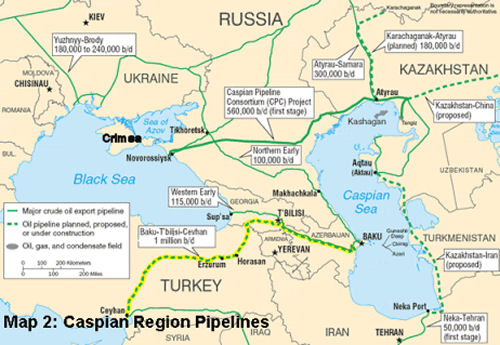
Anglophone press maintains depressingly low standard of reporting
The bias in Australian news reporting on Russia and the Ukraine is profoundly depressing. There is no responsible analysis of the role of the then 'opposition', with members now in parliament, and the use of snipers to fire at police and protesters alike in provoking President Yannukovych to temporarily leave the Ukraine. [Note I have removed the term 'resignation' because he has not resigned. I apologise for the confusion - Sheila Newman] 2 There is no acknowledgement of how elected President Yannukovych formally requested Russia's help - or it is mentioned as if it were specious. Although there was an election due within a year, Yannukovych was forced to flee in peril of his life by the forces that put the current illegal government in place. There is no acknowledgement of the validity of a 97% Yes referendum in Crimea to join Russia.3 There is no acknowledgement that Crimea already had separate administration within the Ukraine and that the great majority of its population identifies as Russian. There has been an over-emphasis on how a minority group of muslims said they had avoided voting and now complain that their needs were not met by the referendum and an underemphasis on how many voted and what they voted for. Little or no convincing evidence has been given for slurs implying that the referendum was either not legal or not well-managed. There is no acknowledgement of the reasonableness and democracy in calling a referendum, which is an example the increasingly undemocratic Anglophone West would do well to follow. There is hardly any mention in the Australian and other Anglophone press that the parliament of Acting President Oleksandr Turchynov, whom Obama greeted in the Whitehouse almost instantly 4 and whose government Australia supports in East Ukraine, contains six members with severe fascist and Nazi affiliations, which kind of explains how the use of snipers was part of the campaign to get rid of the elected government. The increasing evidence of US and NATO aligned Western powers provoking the Kiev coup is not being covered in the Australian and other Western press. There is also no mention that President Yannukovych had offered to bring on early elections to give the opposition a chance to win government legally. There is a constant use of the adjective 'aggressive' to describe Russia's actions in going, on invitation, into a largely ethnic Russian Crimea which had voted to rejoin Russia, in a region where European power-grabs threaten hard-won agreements between the many diverse countries involved in recovering and transporting oil and gas out of the Caspian Sea area.
Oil and Gas in the Caspian region near Ukraine and Crimea
Most of all, there has been a glaring failure of Australian and US and other Anglophone news sources and governments to report that getting power over this region means getting power over major oil and gas reserves in the Caspian Sea and pipelines leading from its shared shores through several different countries with destinations as far as Britain 5 and China. That is why dividing the Ukraine up between Western Europe and Russia is such a big deal.
The Caspian Sea: History, political borders, rights to mine etc.
The Caspian Sea is the largest inland sea. "Geographically, it is a salt-water inland sea or lake covering about 375,000 square kilometres, bordered by the Elburz Mountains of Iran to the south and the Caucasus to the northwest. The Volga River flows into it from the north, forming a large delta near Astrakhan, but evaporation is sufficient to counter the influx, leaving it some 30 meters below world sea level. It is flanked to the north by Russia itself, followed clockwise by Kazakhstan, Turkmenistan, Iran, and Azerbaijan. The three "-stans” gained independence following the fall of the Soviets in 1991. Dagestan and Chechnya, which are still Moslem provinces of Russia on the shores of the Caspian, are still seeking their independence, in a vicious campaign attended by many acts of terror. Under international law, ownership of the offshore mineral rights depends on whether it is deemed a lake or a sea. In the case of the lake, they belong jointly to the contiguous countries, whereas in the case of a sea they are divided up by median lines. The matter, which is no small issue, has yet to be fully resolved, but it seems in practice to be moving in the direction of the latter formula. It is worth noting here that Tehran, the capital of Iran, lies only 100km from the Caspian shore, so its role in the future of the region cannot be ignored." (Colin Campbell, "The Caspian Chimera," Chapter 5 in Sheila Newman, (Ed)., The Final Energy Crisis, 2nd Edition, Pluto Press, 2008."
Don't the Australian public deserve to know of the many geological reasons why this area is so politically fraught, instead of being subjected to incredibly superficial theories of ego and ethnicity, when any explanation is offered at all for territorial sensitivity in the region?
There is a fabulous and apocryphal geopolitical context to this vast oil and gas-bearing region that is the Middle East and Eastern Europe. Russia started the first pipeline there in the 1880s in Baku on the edge of the Caspian Sea, with a pipeline which carried kerosene a total of 835km to the Batumi, Georgia, a port on the Black Sea. It was the longest pipeline in the world at that time. Joseph Stalin actually led workers in the oil industry there.
"In the late 19th century Baku on the Caspian Sea was the site of a pipeline to the Black Sea, financed by Rothschild and Shell Oil. Joseph Stalin was a workers' leader there in an atrocious working environment. By the end of the Second World War, established easily accessible wells in the Caspian were less productive and, although the Soviet Union continued some new development there, including the building of off-shore platforms, it focused more on inland resources which did not require investment in offshore drilling equipment." (Colin Campbell, "The Caspian Chimera," Chapter 5 in Sheila Newman, (Ed)., The Final Energy Crisis, 2nd Edition, Pluto Press, 2008.)
Since the late 19th century this area has been the object of colonial exploitation and wars over its mineral wealth, with British and US exploration teams competing against each other and against Russia. President Trueman's duplicitous policies towards Russia and Ukraine are the subject of Oliver Stone's Untold History of the United States series (book and films). (See interview of Peter Kuznik, Oliver Stone's co-writer on this material here.) The political behaviour towards the region by the US between the First and Second World Wars was eerily similar to its behaviour today.
These geopolitical features have bred extremely tough political survival behaviour in associated royal and elected governments. The toughness is expressed in authoritarian government and sophisticated international relations with commercial organisations, international finance and international governments. Since the first oil shock in the early 1970s, the oil-exporting countries in this region have attempted to shrug off colonial rulers and assert independence. The political countershock from the West has been to fight those attempts. Gaddafi led the formation of OPEC which coordinated the policies of the oil-producing countries, with the aim of getting a steady income for its member states in return for secure supply of oil to oil importers. His efforts assisted independence amongst member oil-producing countries and a world price for oil. There was a brief period when it seemed that the West might respectfully integrate the leaders of those Eastern independence movements and the oil producing countries, but draw-down on world oil resources, through increased demand and finite supply, ever more expensively accessed, has coincided with escalating aggression on the part of the west. Russia and China, for their parts, are acting defensively to secure their geopolitical links with their neighbours.
Pipeline-linked countries vulnerable targets
Most important in the new problems with Syria and Ukraine and Crimea, is access to pipelines conveying oil and gas resources from the Caspian Sea region through surrounding countries, which have strategic power and risks. The absence of reporting on this crucial aspect of East-West hostilities in the Western media makes the Western powers and their media promoters and corporate supporters look guilty and the populations of Western countries look uneducated and incurious. Coverage from the Teheran Times and Russia Today is far more reality based.
"The recent U.S.-backed coup that toppled the former government in Ukraine has been couched in the noble rhetoric of democracy, humanitarian intervention and self-determination, but a closer examination reveals an ugly underside of realpolitik whose motive is energy dominance. Like Syria, Ukraine has one of the key gas pipeline corridors coveted by the U.S. and its NATO allies that is still under the influence of a so-called R&D (resistant and defiant) country such as Russia.
To understand what is happening in Ukraine and Syria, and how Qatar and Azerbaijan are involved, we must briefly look at regional energy developments following the dissolution of the former Soviet Union. While the Persian Gulf is well known for its abundant energy resources, the Caspian Sea Basin also has seen oil exploration and production since the early 1900s however the U.S. and the West had scant involvement there before the end of the Cold War. Since the breakup of the former Soviet Union, the United States and Russia have engaged in fierce competition to control the energy resources of the newly created Caspian Sea littoral states." Source: "The last Argument of Kings," Tehran Times, March 18, 2014 by stratagem, http://www.phantomreport.com/pipeline-predicament-the-ukraine-syria-russia-u-s-gas-nexus"
Importance of who supplies China with gas
Russia's impending new contract to supply its neighbour China with gas for the next 30 years could be one of the things that caused Western powers to make desperate efforts at this time to get control of the Ukraine in order to influence oil supply contracts in the region. (Gazprom negotiations).
Supplying China has been an important goal of competing powers in the region because whoever supplies China has a very powerful friend. Even though contemporary oil-exploration is done by commercial corporations, states vie to develop and maintain relations with these companies. This need to dominate oil-exploration companies is likewise a major reason for US interference in South American and African politics and for South American states to make friends with Russian, Chinese and African states and their geo-exploration companies. Western powers are trying to destroy these alliances by using their own alliances which include supporting Israeli annexation of territories, amassing of arms, and Saudi Arabian attempts to religiously colonise free Arab states, like Syria.
We should all be trying to get along and to plan to downsize world economy in line with dwindling fuel resources, but half the world is doing the opposite.
State Politics and Fossil Fuel Depletion

There is no doubt that the world's industrial powers are encountering increasing trouble accessing affordable fossil fuel resources. All the signs are there: war, loss of democracy, environmental suicide.
A few years ago, the United States began using huge quantities of explosive material in order to crudely reopen old mines and start new ones in situations which it had not pursued before because of their inherent danger, pollution and landscape costs.
It is naive to accept the spin that the US puts on fracking for shale-oil and gas, by which it implies that it now has abundant fuels to supply growth indefinitely. The reality is that the U.S. has to spend more barrels of oil to get shale oil and gas than were ever required to get oil from wells. The reason the US is going after shale-oil and gas is because most remaining crude oil reserves are now very hard to get to, due to their inaccessible geological position and due to international political competition for these scarce resources. And getting shale oil and gas costs more than energy; it costs democracy and it has the capacity to ruin any resilience in the economy. See "Fracking Democracy". People are protesting across the US at how the government is permitting shale-oil and gas mines to take over their farms. They are afraid of pollution (notably of water), subsidence, and the truly awful scale of mining which is transforming landscape and politics, as well as air, soil and water, with massive emissions of carbon gases. Fracking has been banned in France, although the US-influenced EU is trying to overturn this, as it has overturned French law on use of hormone-based pesticides like Roundup and genetically modified crops. The Western powers have also tried to interest the Ukraine in giving them fracking rights in the Ukraine.
Profligate petroleum users have no place in the 21st century
Unfortunately Australia is unwisely following the United States style on fossil fuel recovery. The EU, which tended to have more conservative, longer-view plans, is at risk of being dragged into the same profligate style due to the growing influence of a US-influenced banking system on the EU and the debts which this has already caused in European countries.
Australia, the United States, and Britain, have all exhausted their petroleum reserves by pursuing policies of economic and population growth in the face of common sense. They have also used an expensive and inefficient commercial approach to exploring for and mining petroleum at home and abroad. As oil geologist, Colin Campbell, put it, western oil-explorers "had to pretend that every borehole had a good chance of finding oil" [in order to attract investors], whereas their Soviet counterparts, "were very efficient explorers, as they were able to approach their task in a scientific manner, being able to drill holes to gather critical information" - which meant that, due to being state-financed, they didn't have to sink lots of unproductive and costly wells.
Colin Campbell describes the difficulties of oil and gas mining in the Caspian Sea, explaining how the countries of the region exploited oil resources that could be more conventionally mined. Much of the oil and gas reserves there are, not only under the sea, but deep under the sea-floor:
"In the years following World War II, they brought in the major producing provinces of the [Soviet] Union, finding most of the giant fields within them. Baku [on the Caspian Sea] was by now a mature province of secondary importance, although work continued to develop secondary prospects and begin to chase extensions offshore from platforms. The Soviet Union had ample onshore supplies, which meant that it had no particular incentive to invest in offshore drilling equipment. The Caspian itself was therefore largely left fallow, although the borderlands were thoroughly investigated. Of particular importance was the discovery of the Tengiz Field in 1979 in the prolific pre-Caspian basin of Kazakhstan, only some 70km from the shore. Silurian source-rocks had charged a carboniferous reef reservoir at a depth of about 4,500 meters beneath an effective seal of Permian salt. Initial estimates suggested a potential of about 6Gb, but the problem was that the oil has a sulphur content of as much as 16 per cent, calling for high-quality steel pipe and equipment, not then available to the Soviets. Development was accordingly postponed. The fall of the Soviet regime in 1991 opened the region to Western investment. " (Colin Campbell, "The Caspian Chimera," Chapter 5 in Sheila Newman, (Ed)., The Final Energy Crisis, 2nd Edition, Pluto Press, 2008.
A more cautious Soviet approach and the difficulty of access due to cold climate has meant that Russia has not used up all its oil and gas supplies. It has a good record of efficiency in the surrounding region. Due to the depletion of traditional oil reserves, the time has come when oil-exploration in these dangerous and icy regions nearby Russia will find finance.
Population policies and entitlement to fuel resources
We could go further and say that, as long as the Anglophone countries insist on growing their populations and their economies - which really means growing their need for energy resources and their output of pollution - and starting wars to fulfill these unwise policies of continued growth - they don't deserve what they are going after. We maybe should include India which, like Australia, as an ex-British colony, has all the problems of the Anglophone system where focused beneficiaries of population growth promote it in flagrant opposition to public opinion. The only obvious solution to the problem of finite resources can be to share remaining scarce resources equitably among polities which agree to stop engineering growth and demand upwards. That is a way to avoid continuing wars. In contrast to the rapid population growth in Anglophone countries and India, Russia's population is not growing fast and China has a responsible population policy.
Fracking and western sabre-rattling in this region
The reason for the civil war in Syria almost certainly lies in the growing desperation by the United States and Europe about maintaining large supplies of cheap oil, in competition with China and Russia, with Russia relatively well-situated geopolitically. The United States trumpets its successful recovery through fracking as a cover but, as explained above, anyone who knows anything about oil knows that fracking oil and gas costs far more oil and gas than earlier methods of retrieving oil and gas, but the industries and governments just aren't revealing how much.
The two inland seas, the Black Sea and the Caspian Sea are the sites of major oil and gas exploration, although concerted exploration of the Black Sea is only just beginning, and expectations are modest.6 The reserves in the Caspian, however, are enormous, but the question is how much can ever be accessed and mined. These reserves are deep, dirty, dangerous and nearly inaccessible deposits laced with highly poisonous hydrogen sulphide, however they are sufficiently important for commercial and government exploration to have persevered, leading to the construction of extremely long pipe-lines to transport gas across multiple countries, from Baku, Azerbaijan to the Mediterranean coast of Turkey; from Baku via Russia to Novorossiysk on the Black Sea, thence to Western Europe. Accompanying the longest of these pipelines, the Baku-Tbilisi-Ceyhan, which runs from Azerbaijan through Armenia and Turkey, to the South is Syria, Iraq and Iran, and, above them: Georgia, Russia and Ukraine, with Crimea just above Novorossiysk on the Black Sea. On the other side of the Black Sea is Ukraine, Romania and Bulgaria. On the other side of the Caspian Sea from the Russian side are Turkmenistan, Uzbekistan, and Kazakhstan.
The recent coup against the legitimate Ukraine Government has meant that Russia now has to consider building a very expensive new pipeline around the top of the Ukraine to avoid new incursions into its territory bordering on the Caspian Sea.
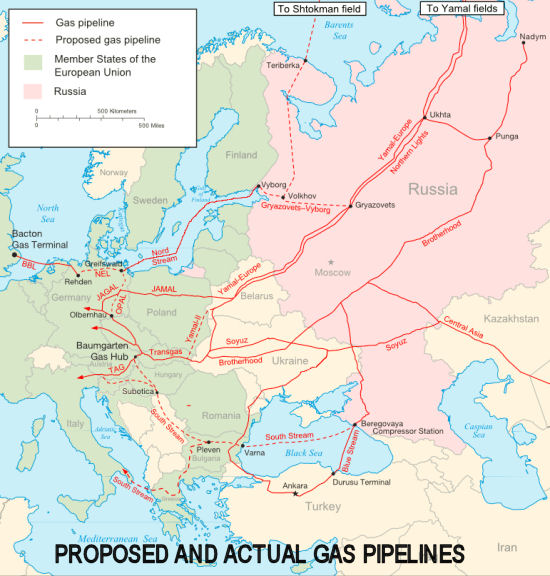
You can see from the map, "Proposed and actual gas pipelines," (Source: Wikipedia commons circa 2007 but still useful) how difficult it would be for Europeans to impose economic sanctions on Russia, for Russia is an important supplier of gas to the rest of Europe. This is likely to cause a split between America, Saudi Arabia, Canada and Australia, which do not have this relationship with Russia. The United States has, however, recently begun exporting shale gas to Europe, creating an impression that it has huge supplies and hoping to reduce Russia's income from and power derived from supplying Europe in the short term.7 In the mean time, it seems the US is actually having problems supplying its own needs:
"U.S. Natural Gas Inventories
Natural gas working inventories fell by 74 Bcf to 822 Bcf during the week ending March 28, 2014. Colder-than-normal temperatures and a few late-season winter storms during the month resulted in increased heating demand, prompting larger-than-normal withdrawals. Stocks are now 878 Bcf less than last year at this time and 992 Bcf less than the five-year (2009-13) average for this time of year. Total stocks, as well as stocks in all three regions, are currently less than their five-year (2009-13) minimums." Source: Energy Information Agency, (EIA), http://www.eia.gov/forecasts/steo/report/natgas.cfm?src=Natural-b1
NOTES
1. ⇑ Sheila Newman's research thesis for environmental sociology, "The Growth lobby in Australia and its Absence in France" (pdf - 100,000 words plus) , was about differences in the way that Australia and France adapted their population, housing and environmental policies after the first oil shock. It contains an historical comparison of pre-oil shock oil-economics in both countries. Later she was co-editor for the first edition of Andrew McKillop and Sheila Newman, The Final Energy Crisis, Pluto Press, UK, 2006; and sole editor for Sheila Newman (Ed. and Author), The Final Energy Crisis, 2nd Edition, Pluto Press, UK, 2008, which is a collection of her work plus scientific articles by nine scientists in disciplines ranging from particle physics through agriculture to environmental science and one economist. In 2013 she published, Demography, Territory, Law: The Rules of Animal and Human Populations, Countershock Press, 2013. [Paperback and Kindle.] The second in the Demography Territory Law series: Demography Territory Law 2: Land-tenure and the origins of Capitalism in Britain, is due for publication by June or July 2014 and asks whether the confluence of coal and iron in Britain caused its massive population growth, assisted it, or followed on from it, whether capitalism was inevitable and why it happened in Britain rather than elsewhere in Europe.
2. ⇑Ramazan Khalidov and Takeshi Hasegawa, "Ukraine Opposition Behind Snipers in Kiev According to a Leaked Phone Call, Modern Tokyo Times, March 6, 2014; "Recorded call reveals Ukraine opposition snipers, not Yanukovych, fired on protestors in Kiev," PR News Channel, March 6, 2014: "In the second leaked conversation regarding Ukraine in as many months, two top-level diplomats have been recorded discussing a potential bombshell in the crisis in Ukraine.
According to The Guardian, the 11-minute conversation between EU foreign affairs chief Catherine Ashton and Estonian foreign minister Urmas Paet details new allegations that the snipers who killed protestors in the Ukrainian capital were not agents of former president Viktor Yanukovych, but rather agents of the opposition forces.
"There is now stronger and stronger understanding that behind the snipers, it was not Yanukovych, but it was somebody from the new coalition,” Paet said during the conversation. [...] "Following the declaration, Paet went on to mention that the new Ukrainian government has heard the evidence, yet has shown no interest in investigating the claims.[...]"
3. ⇑ Mark Byrnes, "Crimea's Controversial Election Day," The Atlantic Cities, March 17, 2014.
4. ⇑ http://www.platts.com/latest-news/natural-gas/moscow/gazprom-says-expects-to-sign-gas-supply-deal-26644803 Matt Vasilogambros and Marina Koren, "White House: In Meeting With Obama, Ukraine's Prime Minister Embraces the West"National Journal.
5. ⇑ The Nord Stream gas pipeline takes gas to Germany, from where it is transported to Britain and other countries. I am not clear as to whether there are still plans to continue the pipeline underwater to Britain.
6. ⇑ The Black Sea has nothing comparable to the proven reserves in the Caspian Sea, but the need to find oil and gas is becoming so pressing that companies have taken out exploration licences for gas reserves they would previously not have bothered with. The Skifska natural gas field located on the continental shelf of the Black Sea was discovered in 2012 and there are other promising deposits offshore from Ukraine. "At the helm of the new energy diplomacy effort is Carlos Pascual, a former American ambassador to Ukraine, who leads the State Department’s Bureau of Energy Resources. The 85-person bureau was created in late 2011 by Hillary Rodham Clinton, the secretary of state at the time, for the purpose of channeling the domestic energy boom into a geopolitical tool to advance American interests around the world."
http://www.nytimes.com/2014/03/06/world/europe/us-seeks-to-reduce-ukraines-reliance-on-russia-for-natural-gas.html?_r=0
7. ⇑ See Gail Tyverborg, "The Absurdity of US Natural Gas Exports", March 31, 2014, http://ourfiniteworld.com/
Putin's annual Q&A session 2014 (FULL VIDEO)
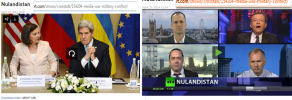 "Nulandistan" is the title of Crosstalk's most recent interview program on current politics in Ukraine, which we link to here. The name Nulandistan, of course plays on the name of Victoria Nuland, US Assistant Secretary of State for European and Eurasian Affairs and her encouragement of the Kiev junta.[1]
"Nulandistan" is the title of Crosstalk's most recent interview program on current politics in Ukraine, which we link to here. The name Nulandistan, of course plays on the name of Victoria Nuland, US Assistant Secretary of State for European and Eurasian Affairs and her encouragement of the Kiev junta.[1] 
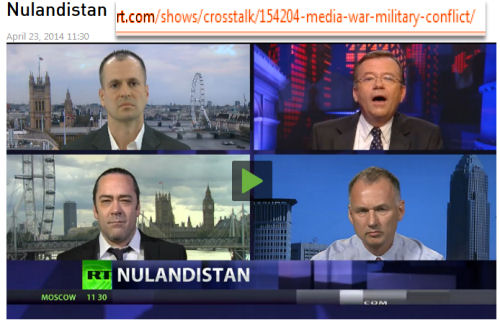
 Wil started from the premise that disgruntled "bad-guy" Australians resent refugees because they are taking Australian jobs.
Wil started from the premise that disgruntled "bad-guy" Australians resent refugees because they are taking Australian jobs. This article opens Australia's productivity closet and finds an extreme population growth skeleton there, masquerading as high labour costs. Some of us would think of it more as an elephant in the room than a skeleton, given the size of the problem, but the metaphor of hiding the issue serves its purpose.
This article opens Australia's productivity closet and finds an extreme population growth skeleton there, masquerading as high labour costs. Some of us would think of it more as an elephant in the room than a skeleton, given the size of the problem, but the metaphor of hiding the issue serves its purpose. The Australian Financial Review in an article entitled, "Australian businesses shackled by high labour costs:poll, on 27 Nov 2013 stated that:
The Australian Financial Review in an article entitled, "Australian businesses shackled by high labour costs:poll, on 27 Nov 2013 stated that: With less than one week to go until the First ever European Presidential Debate broadcast live on Euronews, hosted by the City of Maastricht, Maastricht University, Connect Limburg and the European Youth Forum, the format and themes of the debate have been announced. The debate will see the candidates for the presidency of the European Commission battle out key issues on the future of Europe. With its focus on youth issues, it is hoped that the debate will ignite young people's interest in the European elections and encourage them to vote.
With less than one week to go until the First ever European Presidential Debate broadcast live on Euronews, hosted by the City of Maastricht, Maastricht University, Connect Limburg and the European Youth Forum, the format and themes of the debate have been announced. The debate will see the candidates for the presidency of the European Commission battle out key issues on the future of Europe. With its focus on youth issues, it is hoped that the debate will ignite young people's interest in the European elections and encourage them to vote.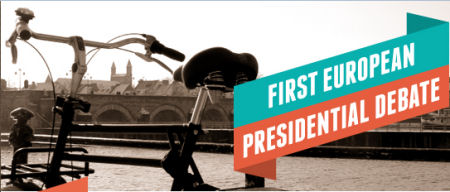 Maastricht, Wednesday 23 April 2014 -- In front of an audience of 700 young people, the candidates, Jean-Claude Juncker (European People's Party), Martin Schulz (Party of European Socialists), Guy Verhofstadt (Alliance of Liberals and Democrats for Europe Party), and Ska Keller (European Green Party) will answer questions that have been gathered from thousands of young people from all over Europe. The candidates will then debate key issues such as foreign policy, the future of the EU, and youth employment.
Maastricht, Wednesday 23 April 2014 -- In front of an audience of 700 young people, the candidates, Jean-Claude Juncker (European People's Party), Martin Schulz (Party of European Socialists), Guy Verhofstadt (Alliance of Liberals and Democrats for Europe Party), and Ska Keller (European Green Party) will answer questions that have been gathered from thousands of young people from all over Europe. The candidates will then debate key issues such as foreign policy, the future of the EU, and youth employment. "The Netmundial Meeting is expected to strip the United States of its power to assign domain names. This is currently the Internet Corporation for assigned names and numbers' (ICANN) responsibility. ICANN is a non-profit organisation, but is under contract and supervised by the United States Government. Many believe that the United States should no longer govern the web, because they have been angered by revelations of its sweeping global surveillance. Currently internet traffic from your emails to web searchers takes a trip through the United States, where it can easily be intercepted. That's one of the main things which governments including Washington's main partners in Europe are willing to change." "Six hundred delegates from 85 countries are in Sao Paolo for a 2 day meeting that focuses on establishing strategic guidelines about the use and development of cyberspace."
"The Netmundial Meeting is expected to strip the United States of its power to assign domain names. This is currently the Internet Corporation for assigned names and numbers' (ICANN) responsibility. ICANN is a non-profit organisation, but is under contract and supervised by the United States Government. Many believe that the United States should no longer govern the web, because they have been angered by revelations of its sweeping global surveillance. Currently internet traffic from your emails to web searchers takes a trip through the United States, where it can easily be intercepted. That's one of the main things which governments including Washington's main partners in Europe are willing to change." "Six hundred delegates from 85 countries are in Sao Paolo for a 2 day meeting that focuses on establishing strategic guidelines about the use and development of cyberspace." 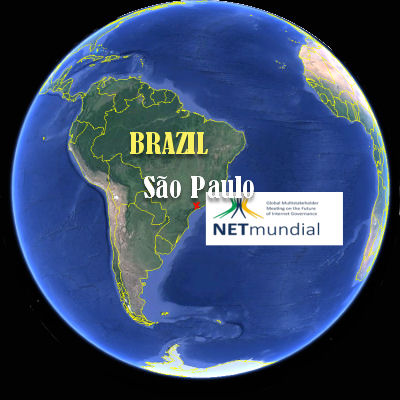
 While mainstream press is only reporting that Turkey's Prime Minister Recep Tayyip Erdogan, blocked twitter, the reason he did so goes unreported. Yet that is the most interesting and shocking thing: A leaked conversation between Turkey's intelligence chief and the war room reveals plot to create a casus belli for war with Syria by using ISIL, an alQaeda offshoot, to threaten a turkish shrine Suleiman Shah Tomb. Turkey has blocked youtube in order to cover up the leaks. Turkish Foreign Ministry confirmed the recording of planning for a military incursion into Syria adding that a 'network of treason' was responsible for leak. Part two of the leaked conversation implicates John Kerry US secretary of state in the plot.[1] Retitled from original title which was, " EXPOSED: John Kerry, Turkish PM and Co implicated in Turkey False Flag Using AlQaeda To Start War With Syria".
While mainstream press is only reporting that Turkey's Prime Minister Recep Tayyip Erdogan, blocked twitter, the reason he did so goes unreported. Yet that is the most interesting and shocking thing: A leaked conversation between Turkey's intelligence chief and the war room reveals plot to create a casus belli for war with Syria by using ISIL, an alQaeda offshoot, to threaten a turkish shrine Suleiman Shah Tomb. Turkey has blocked youtube in order to cover up the leaks. Turkish Foreign Ministry confirmed the recording of planning for a military incursion into Syria adding that a 'network of treason' was responsible for leak. Part two of the leaked conversation implicates John Kerry US secretary of state in the plot.[1] Retitled from original title which was, " EXPOSED: John Kerry, Turkish PM and Co implicated in Turkey False Flag Using AlQaeda To Start War With Syria".
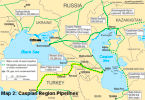
 "The geology of the region itself as well as its position as a geographical gateway to the Middle East, explains wars in Afghanistan, Iraq, Libya, Syria, confusing dialogues with Iran and, now, moves on Ukraine. I really wonder if Australian politicians actually realise what they are backing in the region." Sheila Newman (Evolutionary sociologist specialised in oil geopolitics.)
"The geology of the region itself as well as its position as a geographical gateway to the Middle East, explains wars in Afghanistan, Iraq, Libya, Syria, confusing dialogues with Iran and, now, moves on Ukraine. I really wonder if Australian politicians actually realise what they are backing in the region." Sheila Newman (Evolutionary sociologist specialised in oil geopolitics.) 


 If you thought that the affairs of the Ukraine and Crimea were too abstract for you, maybe this will make you more curious. Natalya Poklonskaya is or was a government prosecutor in the Ukraine Crimea. She has been made into an anime character in a video. She made strong statements about upholding the rule of law and is now on the illegitimate coup-installed Ukraine government's wanted list. The Ukraine government came to power as a result of a US/NATO orchestrated coup in the resource depletion wars of the 21st century. Russia is defending its oil and gas pipelines in the region. Russia had the very first and the longest petroleum product pipeline in the world in the late 19th century and British, US and European governments and commercial interests have been plotting to get more control there ever since. The region is criss-crossed with oil and gas pipelines going in many directions from Baku to as far as Germany and China. Natalya Poklonskaya rightly wants her message to be heard and dismisses this video, however it may be the way to get her message better appreciated worldwide, so we are promoting it. And we include in this article a video with Poklonskaya's real speech, with English sub-titles.
If you thought that the affairs of the Ukraine and Crimea were too abstract for you, maybe this will make you more curious. Natalya Poklonskaya is or was a government prosecutor in the Ukraine Crimea. She has been made into an anime character in a video. She made strong statements about upholding the rule of law and is now on the illegitimate coup-installed Ukraine government's wanted list. The Ukraine government came to power as a result of a US/NATO orchestrated coup in the resource depletion wars of the 21st century. Russia is defending its oil and gas pipelines in the region. Russia had the very first and the longest petroleum product pipeline in the world in the late 19th century and British, US and European governments and commercial interests have been plotting to get more control there ever since. The region is criss-crossed with oil and gas pipelines going in many directions from Baku to as far as Germany and China. Natalya Poklonskaya rightly wants her message to be heard and dismisses this video, however it may be the way to get her message better appreciated worldwide, so we are promoting it. And we include in this article a video with Poklonskaya's real speech, with English sub-titles.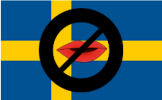
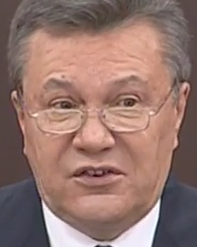
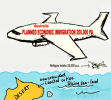 On Monday 31 March 2014, I watched the last half of Q and A, entitled "Human Rights and Wrongs." I was very annoyed by the hugely innaccurate information the panellists were operating with, which went uncountered by Tony Jones.
On Monday 31 March 2014, I watched the last half of Q and A, entitled "Human Rights and Wrongs." I was very annoyed by the hugely innaccurate information the panellists were operating with, which went uncountered by Tony Jones.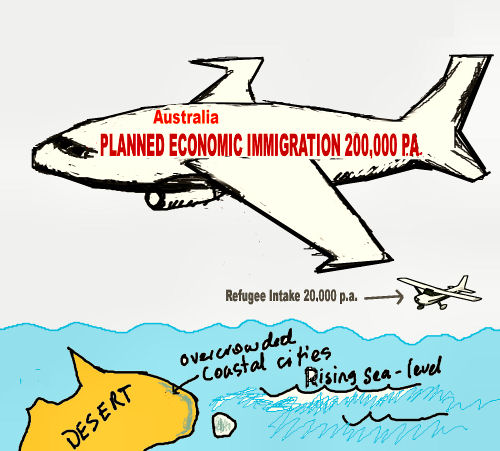
 "Allowing more migration from Asia could help Australia cope with the challenges of its ageing population, a leading economist says," quoth
"Allowing more migration from Asia could help Australia cope with the challenges of its ageing population, a leading economist says," quoth 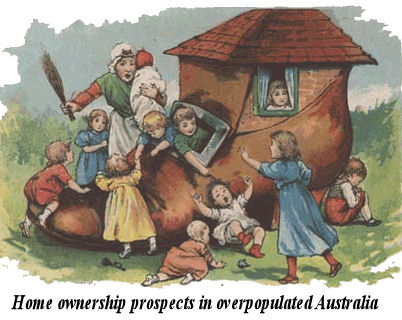 This narrowly-based opinion is published and promoted as 'breaking news' by Australia's mass media as if it were a disinterested and unquestionable truth, but it comes from a person paid by a business corporation to spruik their interests and it is reported by media giants who also have massive interests in property development and finance.
This narrowly-based opinion is published and promoted as 'breaking news' by Australia's mass media as if it were a disinterested and unquestionable truth, but it comes from a person paid by a business corporation to spruik their interests and it is reported by media giants who also have massive interests in property development and finance. 

 The South Eastern Red-tailed cockatoo is under increased threat from Victorian government fire "management" plans. A large part of its critical habitat will be burnt. (Editor: This article was originally submitted as a comment. The subject is so important we promoted it to an article and we recommend the
The South Eastern Red-tailed cockatoo is under increased threat from Victorian government fire "management" plans. A large part of its critical habitat will be burnt. (Editor: This article was originally submitted as a comment. The subject is so important we promoted it to an article and we recommend the  Illustration sourced from
Illustration sourced from 
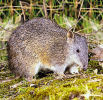
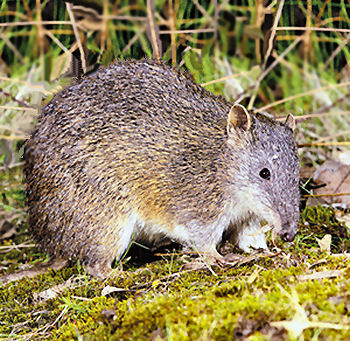

 Here's an April Fools Day headline from the Guardian:
Here's an April Fools Day headline from the Guardian: A disturbing aspect of this comment is the ABC's influence on "public debate and the contest of ideas". This is clearly demonstrated in the agenda-setting bias practiced by the ABC over the last 5+ years of the Carbon Tax debate.
A disturbing aspect of this comment is the ABC's influence on "public debate and the contest of ideas". This is clearly demonstrated in the agenda-setting bias practiced by the ABC over the last 5+ years of the Carbon Tax debate.  An examination of the belief in divine GDP growth, and its miraculous origins.
An examination of the belief in divine GDP growth, and its miraculous origins. Feeding the Multitude
Feeding the Multitude
 The war in Syria has entered its fourth year, yet “Human Rights Watch” and its executive director, Kenneth Roth effectively campaign for its prolongation. This article initially published on the AMRIS pages at
The war in Syria has entered its fourth year, yet “Human Rights Watch” and its executive director, Kenneth Roth effectively campaign for its prolongation. This article initially published on the AMRIS pages at 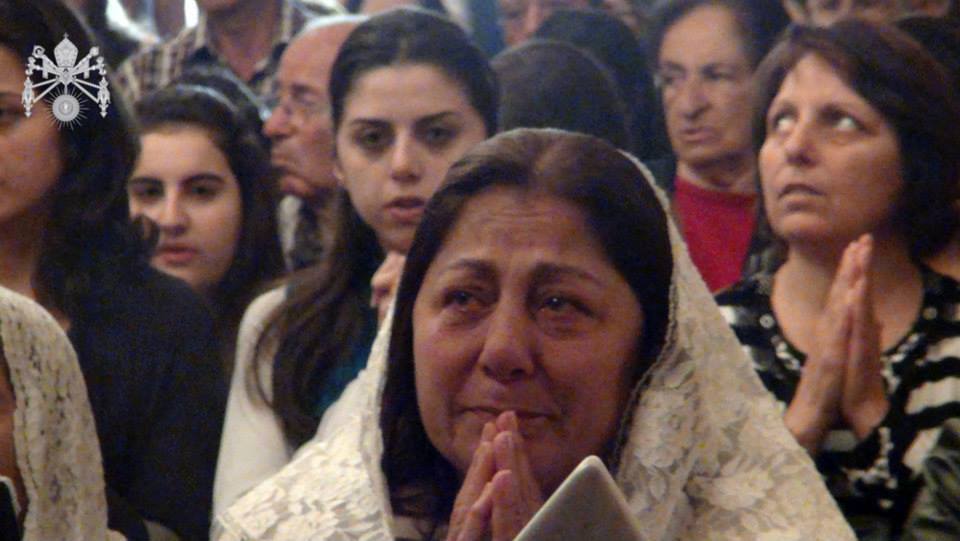
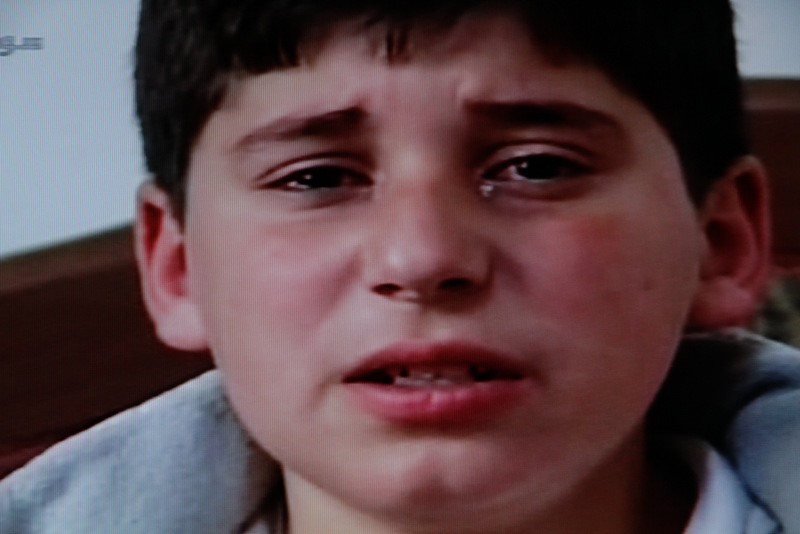



 2. Youtube: A young girl recounts how she was raped by ‘rebels’ her father introduced her to
2. Youtube: A young girl recounts how she was raped by ‘rebels’ her father introduced her to 

 This article was originally published at
This article was originally published at 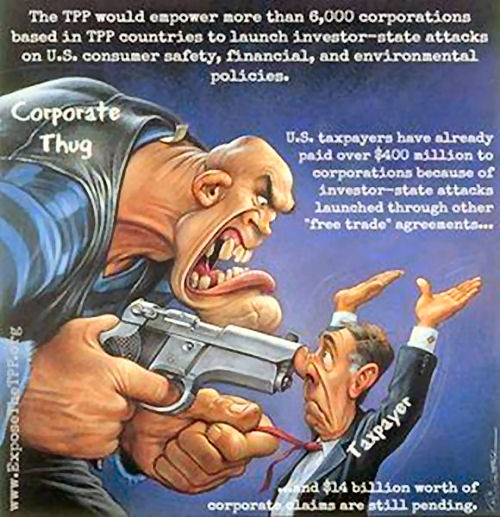
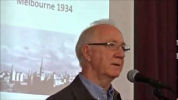
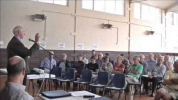 Videos inside. Professor Buxton's speech and comments were hair-raising because he acknowledged our dire circumstances. He also confirmed a lot about how little government listens to citizens. Much of this comes out in the speech itself, but more comes out in the comments in the second film. We hope to find time to do a better commentary, with quotes, to whet your appetite and help you distill the information in the films. We would appreciate any help in transcribing the films and possibly subtitling the second because it is at times indistinct due to failure to remember to bring an extension cord for the camcorder. For the moment, however, we are mainly bringing these films to people who will find what Dr Buxton has to say most instructive.
Videos inside. Professor Buxton's speech and comments were hair-raising because he acknowledged our dire circumstances. He also confirmed a lot about how little government listens to citizens. Much of this comes out in the speech itself, but more comes out in the comments in the second film. We hope to find time to do a better commentary, with quotes, to whet your appetite and help you distill the information in the films. We would appreciate any help in transcribing the films and possibly subtitling the second because it is at times indistinct due to failure to remember to bring an extension cord for the camcorder. For the moment, however, we are mainly bringing these films to people who will find what Dr Buxton has to say most instructive. In 2012
In 2012  Australian medical novelist, Kathryn Fox's writing shows more interest in the lives of victims of crime than in the gruesome details of their deaths. Her obvious social conscience and real sensitivity makes other forensic crime writers, like Patricia Cornwell and Kathy Reichs, look like teen-age necrophiliacs.
Australian medical novelist, Kathryn Fox's writing shows more interest in the lives of victims of crime than in the gruesome details of their deaths. Her obvious social conscience and real sensitivity makes other forensic crime writers, like Patricia Cornwell and Kathy Reichs, look like teen-age necrophiliacs.



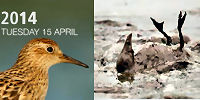 Speakers: Jenny Warfe (Blue Wedges); Jenny Lowe (BirdLife); Dave Minton, Port of Hastings Development Authorities; Simon Brannigan, VNPA Marine spokesperson; Hugh Kirkman, Marine Environmental Consultant. Starts 5.45, Tuesday 15 April, Hastings Community Hub, 1973 Frankston-Flinders Rd, Hastings (booking essential) Westernport Bay is a site of international significance for aquatic birds and right on the doorstep of Melbourne. Its extensive intertidal mudflats, seagrass meadows, saltmarshes and mangroves support more than 10,000 migratory
Speakers: Jenny Warfe (Blue Wedges); Jenny Lowe (BirdLife); Dave Minton, Port of Hastings Development Authorities; Simon Brannigan, VNPA Marine spokesperson; Hugh Kirkman, Marine Environmental Consultant. Starts 5.45, Tuesday 15 April, Hastings Community Hub, 1973 Frankston-Flinders Rd, Hastings (booking essential) Westernport Bay is a site of international significance for aquatic birds and right on the doorstep of Melbourne. Its extensive intertidal mudflats, seagrass meadows, saltmarshes and mangroves support more than 10,000 migratory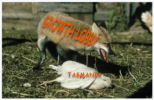 Poor beautiful Tasmania, scene of abject tragedy for the local aborigines, site of Port Arthur, a cruel prison for lower-class offenders of Britain's laws, where a still unexplained massacre took place so recently, host to a disfiguring fatal cancer among its Tasmanian Devil population, and now to have its nature desecrated by people who just want to sell houses to anyone they can and the hell with the consequences. For a long time Tasmania was the one Australian state that lacked the problem of foxes predating on local wildlife, which was in consequence, abundant. Then a few years ago someone let a fox in. At the time it did not seem like a good omen. And it wasn't.
Poor beautiful Tasmania, scene of abject tragedy for the local aborigines, site of Port Arthur, a cruel prison for lower-class offenders of Britain's laws, where a still unexplained massacre took place so recently, host to a disfiguring fatal cancer among its Tasmanian Devil population, and now to have its nature desecrated by people who just want to sell houses to anyone they can and the hell with the consequences. For a long time Tasmania was the one Australian state that lacked the problem of foxes predating on local wildlife, which was in consequence, abundant. Then a few years ago someone let a fox in. At the time it did not seem like a good omen. And it wasn't. Don't miss the Video inside if you want to know what is going on between Russia, Crimea, Ukraine and the US allied forces! It's great to see women profiting from the internet intelligently and finding a place for themselves on the international media without needing to kow-tow to any particular country or the corporate media or a bunch of bloke-bosses. Syrian Girl is an impressive, self-managed commentator and analyst on Syria, who has created her own excellent reporting service. She has earned respect from powerful people, known and unknown, all over the world and obviously gets information from many different sources. Syrian Girl is one-woman education service on Syria today. Now she has introduced the world to "Ukrainian Girl", whom she interviews in this video about what is going on in Ukraine. Good on you Ukrainian Girl! Most readers will find Syrian Girl's questions to Ukrainian Girl helpful in understanding where East, West and 'south' (Crimea) Ukraine fit in the world, politically and historically. The interview is followed by an extremely useful and well edited illustrated analysis of the extremely poor behaviour of the US-aligned forces in Eastern Europe and the Middle East. Although Syrian Girl is aware of oil pipelines in this region, she does not go into it here. She does touch on it in
Don't miss the Video inside if you want to know what is going on between Russia, Crimea, Ukraine and the US allied forces! It's great to see women profiting from the internet intelligently and finding a place for themselves on the international media without needing to kow-tow to any particular country or the corporate media or a bunch of bloke-bosses. Syrian Girl is an impressive, self-managed commentator and analyst on Syria, who has created her own excellent reporting service. She has earned respect from powerful people, known and unknown, all over the world and obviously gets information from many different sources. Syrian Girl is one-woman education service on Syria today. Now she has introduced the world to "Ukrainian Girl", whom she interviews in this video about what is going on in Ukraine. Good on you Ukrainian Girl! Most readers will find Syrian Girl's questions to Ukrainian Girl helpful in understanding where East, West and 'south' (Crimea) Ukraine fit in the world, politically and historically. The interview is followed by an extremely useful and well edited illustrated analysis of the extremely poor behaviour of the US-aligned forces in Eastern Europe and the Middle East. Although Syrian Girl is aware of oil pipelines in this region, she does not go into it here. She does touch on it in 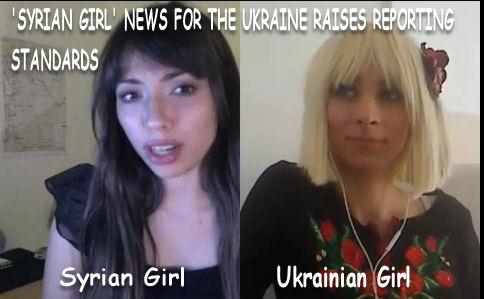
 ABC's next "Q and A" on Monday 31st March will have Kenneth Roth, director of Human Rights Watch, as one of its guests. Consider directing questions to the panel, particularly Mr Roth. Since Q and A have a perspective that often screens out non-mainstream views, feel free to post your questions to candobetter.net as well.
ABC's next "Q and A" on Monday 31st March will have Kenneth Roth, director of Human Rights Watch, as one of its guests. Consider directing questions to the panel, particularly Mr Roth. Since Q and A have a perspective that often screens out non-mainstream views, feel free to post your questions to candobetter.net as well.
Recent comments